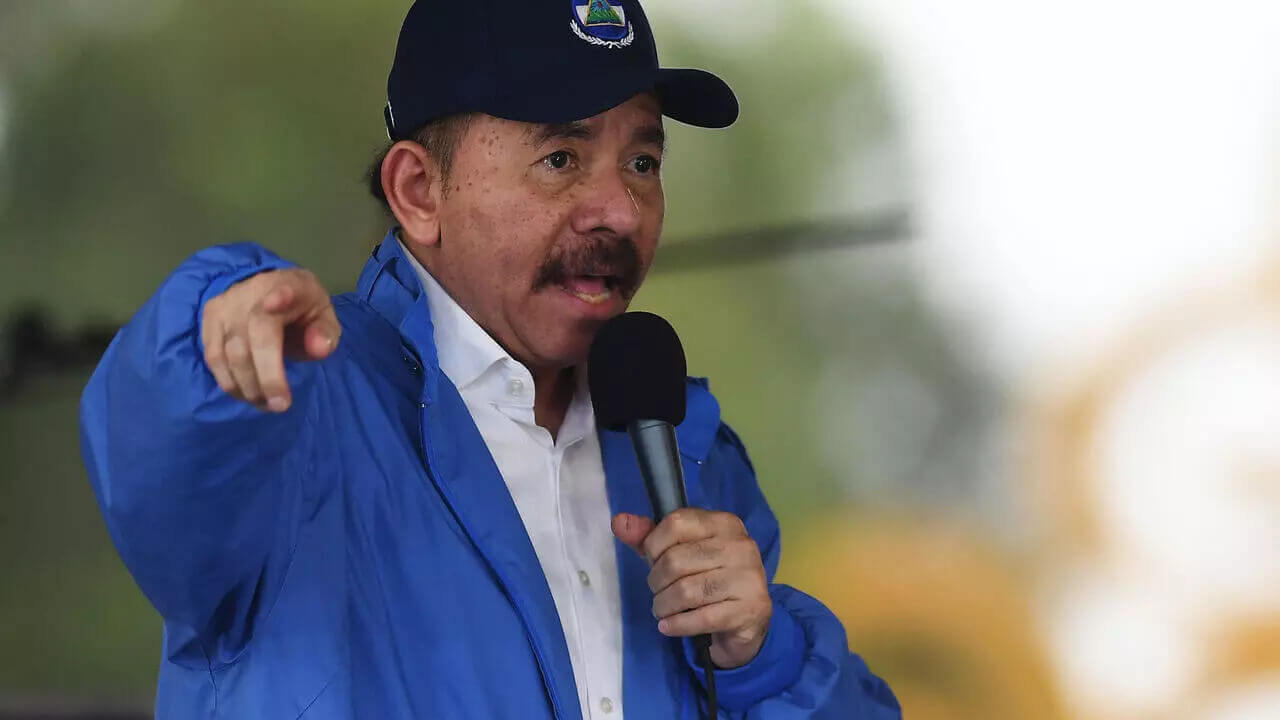The Nicaraguan government has reacted strongly to sanctions by the United States (US) in response to the detention of multiple opposition figures ahead of the Central American country’s presidential election in November.
Last week, Cristiana Chamorro was placed under house arrest on money laundering charges. Chamorro is the daughter of former President Violeta Barrios de Chamorro, and is seen as a potential candidate against incumbent President Daniel Ortega. Following her arrest, a court granted a request to ban her from running in the election or holding any public office. Shortly after, on Saturday, Arturo Cruz Sequeira, a former ambassador the US, was also arrested.
On Tuesday, police arrested Félix Maradiaga (an academic and political activist who had stated his interest in running for office), Juan Sebastián Chamorro (an economist and cousin of Cristiana who had put his name in the bag for the election), José Adán Aguerri (the chief of the Committee on Economic Integration), and Violeta Granera (a sociologist and opposition activist).
Vice President and first lady Rosario Murillo has described those arrested as “terrorists” and “criminals,” with all except Cristiana Chamorro accused of undermining Nicaragua’s sovereignty and independence with the assistance of ‘imperialists’ and “coup-mongers” like the US. Accordingly, they have been detained under a treason law that was passed by the ruling government-controlled National Assembly in December. Anyone charged under this law can be barred from running for office and be sentenced to prison for up to 15 years.
These events have prompted severe condemnation from international actors. The secretary-general of the Organization of American States (OAS), Luis Almagro, called for the release of all political prisoners an end to the “harassment and oppression of the Daniel Ortega dictatorship.”
Likewise, Stéphane Dujarric, the spokesperson of United Nations Secretary-General António Guterres, said, “These developments can seriously undermine the public’s confidence in the democratic process ahead of the November general elections.”
Nicaragua’s action have also drawn alarm among international rights groups. Amnesty International’s Americas director, Erika Guevara-Rosas, said, “The Nicaraguan authorities are once again using the judiciary to intimidate and silence human rights defenders, political activists and journalists. These events make clear that the road to the elections will be plagued with acts of repression making it impossible for the population to exercise their political rights without fear of reprisal.”
The US went one step further, with State Department spokesperson Ned Price announcing sanctions against officials within the Ortega regime, including the president’s daughter, Camila Antonia Ortega Murillo, who is the coordinator of the National Commission for the Creative Economy. The Treasury Department added that she is using the family-run media outlet Canal 13 to spread government propaganda, wherein the president is using “state spending and tax laws to promote family-run stations and squeeze independent rival outlets.” Also sanctioned are the president the central bank, a military general, and a deputy of the National Assembly.
Price further said that Washington “holds President Ortega and those complicit in these actions responsible for their safety and well-being.” To this end, he said, “The region and the international community must stand with the Nicaraguan people in support of their right to freely choose their government and their freedom from repression and human rights abuses. President Ortega is defying the international community, and we will continue to respond.”
In response, the Nicaraguan government has denounced the “imperialist and colonialist” US for interfering in its internal affairs through “illegal, arbitrary, coercive, and unilateral measures” that ‘violate’ the country’s sovereignty.
Also Read: Nicaragua Passes Law to Nullify Opposition, Prompting US Sanctions
The latest sanctions follow events in December, when the Trump administration levied sanctions against key officials in the Ortega in response to Nicaragua’s parliament passing a law that permits Ortega to unilaterally designate citizens as “terrorists”, “coup-mongers”, or “traitors to the homeland”, which would effectively bar them from running for office.
75-year-old Ortega has been in power since 2007, and previously ruled from the country from 1979 to 1990. His power is derived from the Sandinista revolution in 1979, when he and his allies overthrew dictator Anastasio Somoza Debayle. Since then, however, his appeal has waned and he has leveraged his power over the courts and removed term limits to cement his iron grip on the government through more nefarious means.

